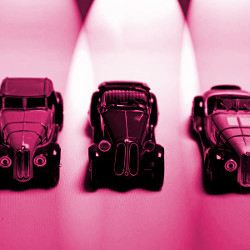Future BMWs & Mercedes Could Have The Same Insides
https://bvzine.com/link/future-bmws-and-mercedes-could-have-the-same-insides
BMW's relationship with electric vehicles is a little mystifying, to say the least. The company has made constant improvements to the i3, but also called EVs irrational. From the glimpses we've got of the pipeline, it's looking like we have beautiful EVs and complete monstrosities on the way. It's not feeling all that consistent.
One thing that is consistent, though, is BMW's relationship with Daimler. The two companies have been growing closer for a little while already, announcing a string of cooperation agreements over the last few years. The most recent was the decision to work together developing autonomous driving technology — something that's sorely needed — which followed the decision in early 2018 to merge their respective carsharing services. This is against the backdrop of behind-the-scenes cooperation, including shared procurement programs between the two companies.
Now, though, it seems that cooperation could go even deeper. The German media is reporting that the two companies are considering joining forces to develop a shared platform for electric vehicles.
It wouldn't be the first time BMW has co-engineered vehicles with its competitors. The company has already worked with Toyota in designing the underpinnings of what would become the Z4/Supra, two vehicles with plenty in common. In that case, the decision was motivated by the desire to cut costs; roadsters are a niche product, one that BMW couldn't justify investing in without a partner to split the bill with.
Electric vehicles find themselves in a similar situation — they're growing in popularity in some countries, but the global market for a luxury electric vehicle is still pretty small. Realistically, BMW isn't going to be able to shift enough vehicles to justify a full-on investment in electric vehicles. Sharing development costs with Daimler, however, could see both companies saving over €7 billion ($8 billion) each.
Should the plans come to fruition, it's expected that BMW and Daimler would co-develop an electric-first platform for compact and midsize vehicles, though it would also be able to accommodate conventional drivetrains. That could see it eventually replacing the lower-end UKL/FAAR platform, which remains very much electric-second. As the UKL architecture is used primarily in MINIs, it's possible that any joint BMW-Daimler platform wouldn't even make it into the majority of BMW's own-branded electric vehicles, which could instead rely on the existing CLAR platform for the immediate future.
 By
By